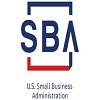Reporting Medical Device Adverse Events
05/15/2019
Category: Medical device consulting
Errors associated with medical devices can be costly to health institutions and manufacturers, with some patients paying the ultimate price with their lives. Some of these medical device errors could be prevented. The U.S. Food and Drug Administration (FDA) obtains accounts of errors or adverse events for medical devices that encompasses a spectrum of reporters. Some reporting is required, such as adverse events from the manufacturer, while the FDA relies on consumers to report their issues on a voluntary basis.
After 510k approval, a medical device company has the obligation to report any errors to the FDA through Medical Device Reporting, known as MDR. Medical device consulting firms advise clients to have a plan in place on how and what to report to the FDA. Medical device consulting firms will implement flow charts which make it easy for personnel to follow and easily access federal code regulations which will cite the specific requirements.
The FDA offers consumers and health professionals the ability to report medical device issues online utilizing their MedWatch system. There are different forms for reporting depending upon who is making the submission. Health professionals will report on form 3500 and consumers will report on form 3500B. Both of these types are voluntary.
Also Read: Toxicology Studies in Drug Development
The FDA requires manufacturers, importers, and device user facilities to report certain device-related adverse events and product problems utilizing form 3500A. For example, if a medical device causes serious injury or death or has a potential to do so through a malfunction the manufacturer is aware of, it must be reported to the FDA.
The importer is required to report any malfunctions to the manufacturer, but if there was serious injury or death, the importer must file a report to the FDA. A device user facility must report a serious injury to the manufacturer. If the manufacturer is not known, then they must report it to the FDA. Medical device consulting firms will generally advise filing a report with both the FDA and manufacturer. However, if the death was suspected due to the medical device, it must be reported to the FDA via Form 3500A.
Use error reporting is required to be reported to the FDA. The use error usually occurs when a result of the device use was different than intended but was not a malfunction of the device. Medical device use errors are the most common and most preventable. Many large hospitals are relying on medical device consulting firms to use human factor engineering (HFE) principles and techniques to educate their employees.
Some medical device consulting firms will go the extra mile in creating a full-service training program which includes manuals, presentations, and SOP implementation. When reporting to the FDA, it is important to include information such as a detailed description of the issue, location of the event, device type, brand name, lot number, personnel or patients harmed, type of issue (break, malfunction, defect), and whether there was someone directly operating the device when the event occurred.
The report should also describe whether the patient was undergoing any additional procedures or therapies that could have contributed or caused the event. These details can be useful in the identification of causal factors for the adverse event. The Voluntary Malfunction Summary Reporting Program allows manufacturers to report certain malfunctions to the FDA on a quarterly basis, allowing the FDA to follow malfunctions of medical devices more closely. Successful surveillance of medical devices can only be achieved if everyone involved does their part.
Manufacturers, importers, health professionals and patients all play a critical role in decreasing the amount of medical device errors through reporting adverse events in a timely manner with full descriptions of the event. If your company could use a review of their adverse event reporting for medical device issues, consider contacting a medical device consulting firm.
About Author
Christina Sanchez Miller, MPH
has over 20 years of management, biologics, quality assurance and research experience in the medical field. She is a published author in scientific books, papers and has presented at several international conferences. Christina has developed medical applications in the biologics field. Her experience includes operations and consulting in FDA Adverse Event Reporting, FDA Product Deviation Reporting, FDA 483’s, cGTP’s, infection control, certified ISO Class 5, 7, 8 development and maintenance, QIC and auditing.
BRG is a global scientific & regulatory consulting firm with extensive experience in the strategic development of drug products, biologics, medical devices, combination products and in FDA regulatory affairs. BRG is a pharmaceutical consulting group focusing on NDA regulatory services, medical device consulting, and IND consulting services. The opinions and statements in this blog are those of the authors and do not necessarily reflect those of BRG. This blog is based on personal experience and reviews of information publicly available or identified in other database searches.
tagging: medical device > Medical Device Consulting > medical device development consulting > medical device quality consulting


